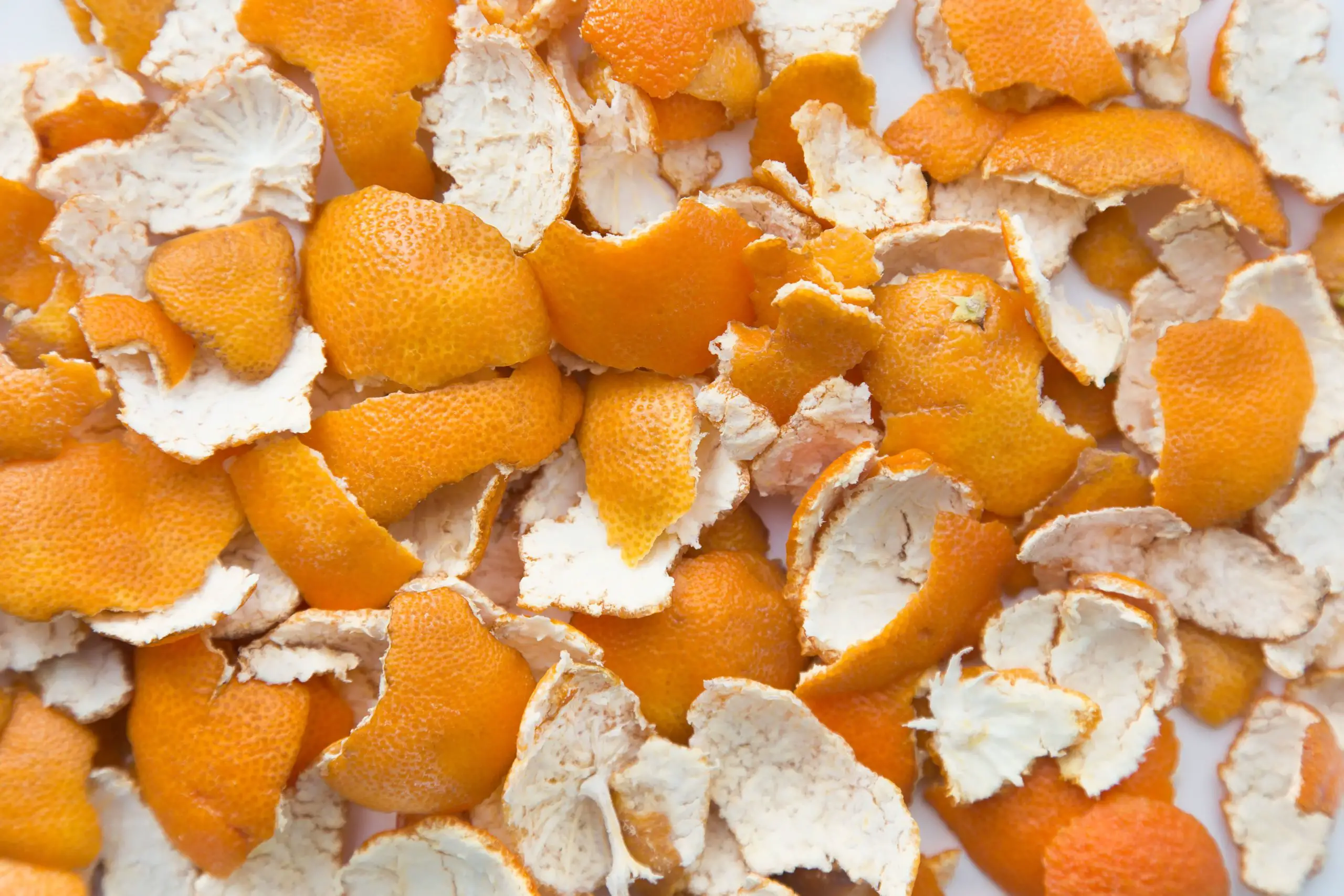Many people regard oranges as their favorite fruit. There is nothing as gratifying as eating fresh oranges or drinking a glass of fresh orange juice. But, what can be done with leftover peels? Are orange peels good for plants?
Yes! orange peels are good for plants because they’re ideal for creating a healthy soil and a pest-free garden. Don’t throw them away but instead use them in your garden and minimize household waste. Orange peels will also reduce spraying chemicals to grow healthy and beautiful plants.
How Can Plants Benefit from Orange Peels?
There are many household scraps that can make your garden shine, and orange peels are one of them. As soon as you peel an orange, its sweet scent immediately fills the air.
Many people think that as soon as you eat the orange itself or squeeze its juice, the peel’s job is over. The next thing to do is to throw the peel to the nearest trash can.
More and more folk are now realizing that once you have consumed the orange, there are still many ways you can use the orange.
So, are orange peels good for plants? Yes, they are! Orange peels have many uses for your plants to benefit from.
Here Are the Many Ways Your Plants Can Benefit From Orange Peels.
Orange Peels Can Acidify the Soil
Some plants, like perennials, vegetables, and flowers need slightly acidic soil to grow and thrive. You can use orange peels as an acidifier.
How Do You Use Orange Peels to Acidify the Soil?
Method 1:
- Dry the orange peels.
- Grind the orange peels into powder form.
- Sprinkle the orange peel powder on top of the soil.
- Mix the powder in the first inch of soil.
Method 2:
- orange peels.
- Grind the peels.
Add some water into the ground orange peels.
- Spray the mixture to the soil and plants.
The mixture will decrease the acidity of the soil and boosts its nutrients.
You can also place some shredded orange peels into the hole on the ground before planting.
Most substances such as water usually have neutral 7 pH. This means they are not alkaline r acidic. Orange peels, on the other hand, have pH 3 and a little above pH 4.
The amount of pH will change depending on the amount of orange peel powder you mixed with the soil.
Aside from increasing the acidity of the soil, the orange peels can also supply your plant with other nutrients.
Orange Peels Make Good Fertilizer
Orange peels are high in sulfur, nitrogen, calcium, magnesium, and other nutrients.
These nutrients can boost the growth of your plants.
How Can You Use Orange Peels for Fertilizer?
- Finely cut the orange peels.
- Dry the orange peels.
- Blend the orange peels into fine powder.
- Stir the powder into the soil.
Nitrogen is the most essential nutrient your plant’s needs. All good fertilizers are high in nitrogen content. Once mixed into the soil, the ground orange peels will release their nitrogen content and make your soil rich in nutrients that your plants will love.
Orange Peels are Good for your Compost
Composting is the process of using decomposed organic materials to restock nutrients in your plants. Composting combines the benefits of using natural fertilizers and minimizing your waste materials.
Compost is one of the cheapest and easiest ways to nourish your plants.
Orange peels contain nutrients (potassium, phosphorous, and nitrogen) that will blend and break down into “black gold” soil to give your plants a terrific boost.
Adding orange peels to compost will make it exceptionally nutritious. As the orange peels decompose, nitrogen will be added to your compost.
Note, however, that the acidity and natural chemicals in orange peels can cause worms and other microorganisms to die slowing down the decomposition in your compost pile.
You may need to chop the orange peels into tiny bits so they will not take forever to break down and be the reason you cannot use your compost the soonest.
A Balanced Compost Needs the Following Materials:
- Brown materials that add carbon to the compost mix (straw and leaves).
- Green materials that add nitrogen to the compost mix (weeds and grass clippings).
Orange peels are considered green materials when composting. Mix them with carbonaceous materials (brown materials) to form humus organic dark material formed in the soil when plant and animal wastes decay).
Chop the orange peels into small pieces because they will degrade faster. Mix them well with the rest of your compost materials, too because are extremely high in nitrogen and naturally acidic.
Do not add orange peels if you are doing your own vermicomposting
(a process to decompose organic waste) because worms will not eat them.
As a bonus, orange peels can protect your compost from pests and scavengers because many of them do not like the smell of orange peels.
Orange Peels are a Natural Pest Repellant
Orange peels contain d-Limonene, an effective all-natural insecticide. This chemical can damage the nervous system of pests causing them to suffocate and eventually die.
D-Limonene tears down the waxy coatings in pests, specifically on aphids and ants.
D-Limonene is safe for your plants. It is an active ingredient in many eco-friendly bug sprays.
Plant pests such as aphids may be small, but they can cause havoc to your plants. If you do not want to use chemical pesticides, orange peels can be your best solution
Orange peels can keep away aphids, mosquitoes, and bugs from your plants because you can use them as a natural pest spray repellant.
Method 1:
- Cut the orange peels so that they are small enough to fit into your spray bottle.
- Fill your spray bottle with hot water.
- Shake the spray bottle well so the mixture will thoroughly cool.
- Spay your orange peel repellant on the aphids.
Method 2:
- Boil one-half cup of orange peels in water for 10 minutes.
- Strain out the orange peels.
- Pour the liquid into a spray bottle.
- Spray your plants once or twice a week.
You can also place orange peels around plants that are often attacked by pests.
Your orange peel insect repellant is safe on your plants. It is a natural and chemical-free way to repel bugs.
The fragrance of orange peels keeps pests away from your plants, too.
Note that using orange peels as insect repellants are effective only on mild infestations.
You may need to spray other organic insect repellants or pesticides for larger insect infestations.
Orange Peels Keep Critters
Bugs are not the only things that despise the fragrance of orange peels. Cats and dogs hate them, too.
You can place shredded pieces of orange peels blended with some coffee grounds around the edge of your garden or sprinkle the blend in your garden and their scent will keep cats and dogs away.
Shallowly burying shredded orange peels in the soil can keep pests away, too.
You can also try to place orange peels in spots where these animals usually dig on the ground to discourage them from digging.
The combination of orange peels and coffee ground can also fertilize the soil.
- Orange Peels Can Be Used as A Seed Starter Orange peels make good organic seed starters. You can use orange peels as the base where your seedlings can hatch.
- Poke small holes at the bottom of the orange peel. The holes will serve as drainage.
- Fill the orange peel with potting mix.
- Add the seeds.
- Water the seeds.
- When your seedlings are ready for transplanting, transfer the seedling and orange peel into the soil.
The orange peel will compost in the soil. It will further serve as nourishment for your plant to grow quickly and healthy.
Orange Peels Attract Butterflies
Plants need butterflies for pollination as well as for ambiance and color. While some creatures despise orange peels, they can be used to attract butterflies to your garden.
Leave the orange peels in a shallow dish and place them in your garden. The sweet fragrance and leftover juices of orange peels will attract butterflies to your garden.
Use Orange Peels to Drive Away Mosquitoes
Mosquitoes hate the smell of orange peels. Throw some orange peels in your garden to drive away mosquitoes. When the orange peels dry, they will lose their fragrance and, therefore, will no longer be effective in driving mosquitoes away.
Use Orange Peels to Get Rid of Ants
Ants are a big threat to your garden because they help aphids spread and disturb the soil causing damage to your plants.
You can use orange peels to get rid of ants. Chop the orange peels into small pieces and place them near the entry points of the ants.
Final Thoughts
An affirmative answer to the question, are orange peels good for your plants? may make you form the habit of never throwing away another orange peel, and instead, using them in your garden.
Doesn’t it also make you stop and wonder about the good uses for other household waste? …………..
Jenny Marie
Tribal Writer
Edited By
Patricia Godwin

